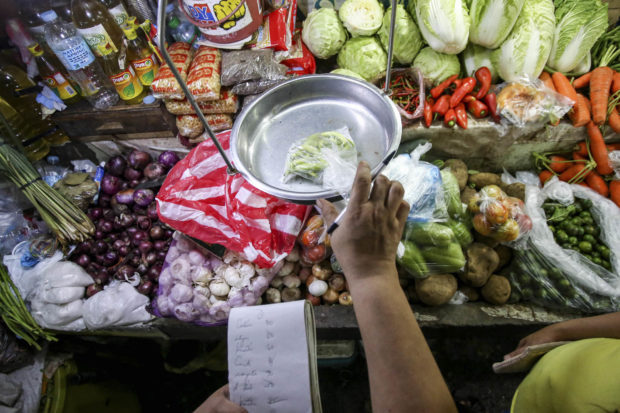The National Economic and Development Authority (Neda) expects the short supply of some food items to aggravate already high consumer prices.
In a report on Tuesday, the state planning agency said supply of chicken, highland vegetables, as well as rice will be “sufficient” for the rest of 2022.
However, the Neda said corn, fish, lowland vegetables and pork would experience supply deficits this year.
For corn, Neda estimated a three million-metric ton deficit; for fish, 267,200 MT; and for pork, 102,300 MT.
Lowland vegetable production, meanwhile, would reach only 1.6 million MT this year, equivalent to 88 percent of domestic demand.
“The volcanic eruption in Sorsogon is not expected to have a significant impact on the national supply of highland and lowland vegetables, as the Bicol region does not account for a significant share of the total vegetable production. As of June 28, the Department of Agriculture (DA) has recorded a total of P12.7 million in damage and losses, 94.4 percent of which are high-value crops,” the agency said.
The Neda noted that former President Duterte issued Executive Order No. 171 on May to import more corn, pork, rice, as well as coal at lower tariffs.
“The tariff adjustments will facilitate the diversification of import sources for these products,” it said.
Logistics issues
As for pork, “the timely unloading of pork stocks from cold storage is also necessary,” Neda said, as domestic distribution of imports, especially to wet markets in the regions, lagged behind despite the entry of more shipments to augment supply.
The same was true for fish, where distribution in local markets lagged despite an additional maximum importable volume of 38,695 MT covered by the DA’s new certificate of necessity to import (CNI) issued in May.
“The DA may continue pursuing the removal of the CNI requirement for the importation of fish for wet markets,” Neda said.
To address elevated inflation, President Marcos’ economic team had said they would sustain food importation while building up domestic production capacity and efficiency.
Due to the effects of expensive oil spilling over to food and transport costs, headline inflation averaged 4.4 percent during the first half of 2022, above the Bangko Sentral ng Pilipinas’ 2 to 4 percent target range of manageable price hikes conducive to economic growth. INQ
